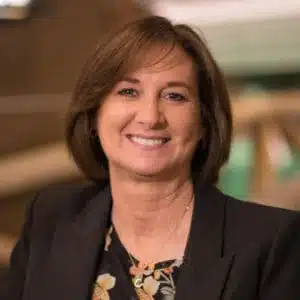News for December 26, 2025




This week on MC Fireside Chats, we talked to industry experts Shyft Group Specialty Vehicles President Steve Guillaume, IVEE Management Group Director of Operations Scott Knepp, Florida and Alabama RV Park and Campground Association (FARVC) CEO Bobby Cornwell, and RV Women’s Alliance President Susan Carpenter.
In this episode, the group discussed how Shyft Group is growing its operations in terms of innovations and the customer experience in its products. They also talked about how associations help RV parks can prepare during hurricanes.
The discussion kicked off with Steve Guillaume introducing the 40-year-old company, Shyft Group. He said that the company uniquely combines in-depth industry knowledge, engineering and manufacturing expertise, and purposeful innovation to deliver job-enhancing, efficiency-driving, ever-reliable products, and services.
When asked what changed throughout the history of the company, Guillaume said that the main focus of its operations was innovation and customer satisfaction. Shyft continued its growth by initiating projects like new product segments and technological advancements for customer experience.
The company also became more active in the truck body space and had a number of acquisitions to expand its operations.
Guillaume also said that when it comes to the company’s products, what excites him the most was the handling and maneuverability of the vehicles. These two factors are what allow their customers have more confidence driving the vehicles, especially heavier RVs.
Bobby Cornwell discussed the contributions of the FARVC to RV parks and campgrounds in the state of Florida and Alabama. He said the association provides support like lobbying, networking, and other forms of support needed for the parks.
“We helped pass a law to help parks rebuild infrastructure to their original state. We also help flow communication during important situations like hurricanes or where the staff and customers can stay during these situations,” he said.
During hurricanes like the recent one that hit Florida, Cornwell said they help with the evacuations of the parks and provide emergency accommodation for the staff and the guests. He added that evacuations depend on the parks or if it is required by the county.
He recommended that if the park is in the path of the hurricane or near it, managers must evacuate its staff and guests to ensure everyone’s safety. Unless the park has a storm shelter, RVers and staff are not recommended to stay in the park.
Cornwell also said they are working closely with RV service companies to go park to park after hurricanes to help repair RVs that needed it.
Scott Knepp said communication is one of the most important but difficult aspects when preparing for, during, and after a hurricane. He added that it was essential to help parks create a “battle plan” for the parks.
“Communicating often and early is needed to be prepared for changes and ensure they can relay important information during emergencies,” Knepp said. “Our primary communication early on is to have owners plug onto local mediums to keep themselves updated about important announcements and relay them within the organization.”